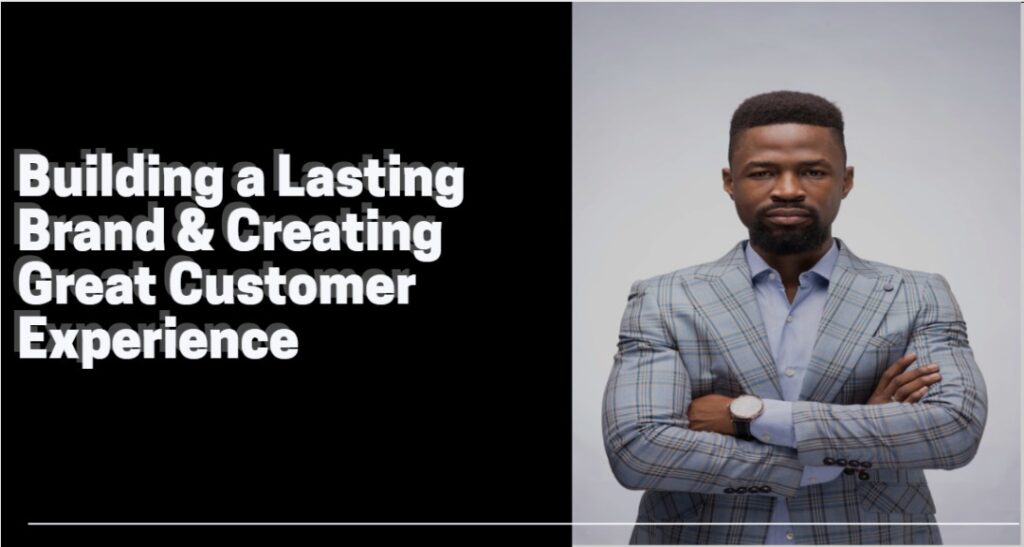I hope this article meets your expectations. I’m pretty sure when you read on, this might not reflect what you anticipated, you know why? For a long time, we’ve always had a myopic view of branding or brand management.
I won’t be talking about how your logo should look or what color combinations work well for a Nigerian business. All of these have little or no impact on the customer experience. Well, for differentiation and brand recall, it’s a good conversation to have, but that is not the focus of this my short scribble.
So let me start by asking a rhetorical question…
Do you know that creating a great brand experience is more important than building a brand identity?
Yes, it is!
Brand experience is how the user feels when engaging or interacting with your brand. While Brand identity is the visible elements of your brand, such as color, design, and logo, that identify and distinguish your brand in consumers’ minds.
As a local business, you need to begin to THINK BRANDING beyond the context of logos, colors, and creative expressions to how you make the CUSTOMER FEEL when they engage with your business. There are two primary expressions your customers will evoke when engaging with your brand, it is either happiness or sadness, your brand will either make people feel good or feel bad.
Nigerian business owners need to focus on working on their INTERNAL PROCESS to deliver an excellent customer experience than exerting time and efforts on identity and promotional activities but with a poor customer experience.
While you are setting up or running your business, think CUSTOMER FIRST. Put in place strategies that will deliver an outstanding experience before running adverts that expose your inefficiencies.
Do you think Apple got the level of mindshare or wallet share they have now ten years after it started? No. I am sure nobody cared.
Steve Jobs once said, “If you’ve always thought marketing and branding is about selling and crafting a nice brand tagline, then you are making great mistakes, there is something deeper which is the CORE VALUE a company stands for.”
I am not sure this is the position of so many brands in Nigeria, for a lot of them, as far as it looks appealing to the eye and its smooth to call, then we’ve got our branding going.
For instance, Red Bull concentrates on their values and beliefs as a brand – they are not selling a product but selling an energetic and active way of life that people want to follow and be involved in, just the same way you read about NIKE.
Companies in Nigeria are often too focused on making profit by all means that they get lost in it, but brands that connect with the people have always been thriving.
You build your brand equity over the years by delivering on your brand promise and creating a memorable experience, so don’t be in a hurry to stand out because of “Ordinary Logo” or throwing banters on social media, focus on an efficient and effective operation that promotes excellence.
However, this is not an attempt to dispel creative ingenuity in the world of branding but to activate a paradigm shift in the perception of what true branding is all about. You will often hear some people say, you can sell a bad product with the proper packaging, of course, yes, but only for a short period, and when it backfires, be ready to face the outcome.
As a business, the customers should always be at the center of everything you do, from product ideation to design, communication and delivery, because the end goal should be to create a memorable customer experience and satisfaction
It’s time organizations begin to focus on customer satisfaction beyond the euphoria of social media fever. Your customers do not care about how beautiful your brand assets are but how excellent you treat them.
My advise to Nigerian business, take time out, consider what is not working in your operation, ask for customer feedback about your product and services, re-engineer your processes to align with your customers’ needs and expectations while you continue to showcase the beauty of your brand through other creative assets, don’t put the cart before the horse.

